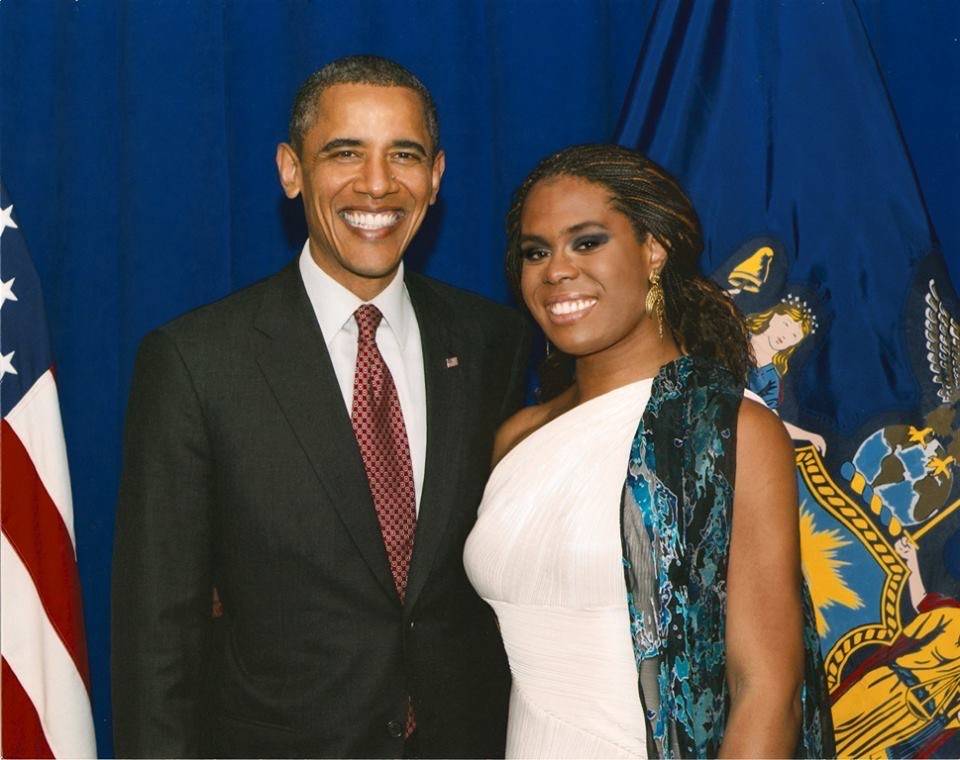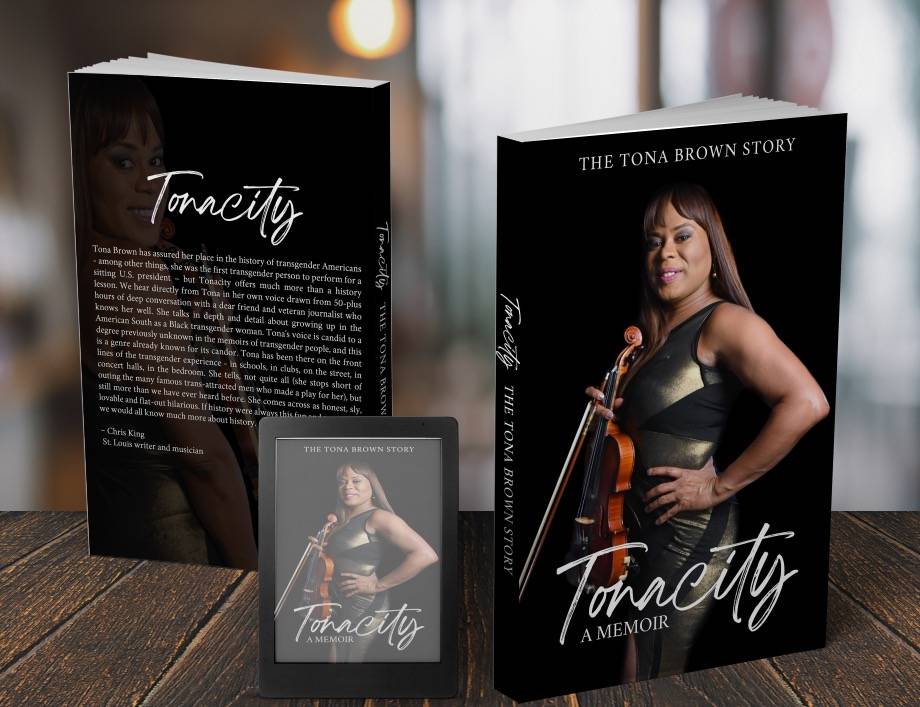An interview with Tona Brown, a Musician, Advocate and Role Model for the Trans Community
Interviews
Opera singer, violinist, music teacher and trans activist Tona Brown talks to myGwork's Pepi Sappal about her advocacy work both as a musician, advocate and role model for the trans community, as well as the many challenges the trans community in the US faces right now.
Tona Brown may be best known for being the first trans woman to headline at Carnegie Hall, as well as the first trans woman of color to sing the national anthem for a sitting president in 2014 when she sang for then President Barack Obama, but she is also an outspoken vocal role model advocating for trans rights, particularly trans youth and people of color.

Ahead of her keynote for WorkPride, last year, Tona shared a few insights into her advocacy work both as a musician, advocate and role model for the trans community, as well as the many challenges the trans community in the US faces right now.
Access to jobs, changing your name and getting all the necessary gender marker changes for a trans person in the U.S. “Really depends on what state you're in, and it’s more challenging in some more than others for the trans community as you can see from our politics with Ron DeSantis and Florida,” highlighted Tona. “Another big challenge for the trans community is finding people who will respect you as a gender non-conforming, non-binary or transgender person. That is a huge problem because everyone is trying to date you, but they don't want the world to know about it. So, it is not an easy life. The challenges are multifaceted.”
Tona is particularly concerned about trans youth right now. “LGBTQ+ youth are the most vulnerable,” she noted, describing all the misinformation around trans people as “Appalling. This is very, very harmful and it's regressing us back to before people had these freedoms. So, I fear for the youth right now.”
The anti-trans political sentiment and misinformation is currently relentless. Topics such as trans students in sports and access to hormone therapy are fuelled by misinformation, and these conversations are having very real consequences, such as “Suicide rates going through the roof.”
Tona shared her personal challenges growing up as a young child, as well as the bullying incidents at school for being different. She loved playing the violin and enjoyed dancing ballet, tap and jazz. However, after realising she was too “fleshy” to do ballet as a boy, Tona chose to spend her teens focusing on playing the violin and finding her unique voice.
While at college Tona discovered that having a combination of masculine and feminine singing tones gave her unique vocal style which accelerated her music career as an opera singer, as well as a violinist. It was also then that she decided to fully transition, and shared how her family and tutors were hugely supportive of her decision. “My mother never denied who I was. She just wanted me to grow up with good self-esteem. So did my aunts and my grandparents. But there were others that were not [supportive], so my mom sheltered me.”
Although Tona was supported by the majority of her family through her transition journey she recognizes that, sadly, this is not the case for many in the trans community. Tona also explained how the arts world, which is now more accepting of the LGB community, has excluded the trans community for many years. “You would think classical music and opera where there is so much cross-dressing would be more open and inclusive, but there’s actually a lot of bias and microaggressions, especially in the audition space.” She recalled one coach during an audition say “Oh, this repertoire goes above an F - you probably can't sing anything over that,” which ultimately limited her access to many roles.
This is precisely one of the reasons why Tona started her own teaching company Aida Studios, which offers masterclasses, seminars, workshops for colleges and universities, as well as DE&I speaking engagements for corporations. She goes into the homes of all kinds of students to coach them on their voice and singing skills, in person and virtually. She is also urging the arts sector to be more trans-inclusive and provide the much-needed funding to improve awareness and representation of the trans community.
Tona wants the young trans community to know that there are people like her advocating on their behalf, by being that vocal role model that she never had, especially for trans youth of color. Her advice to those struggling with family and friends right now, is to “Find that group of people that support you and your transition, and love you for who you are, and are going to call you by the gender that is affirming to you.”
“Everyone is not going to get it. Everyone is not going to like you,” she added. “So don't stay in situations with people that are going to be disrespectful to you all the time because that's what causes most of the psychological harm. It's imperative to find that small circle of people who are going to be respectful to your identity and support you.”
Tona’s other key advice to LGBTQ+ youth is to find a hobby or an interest “Where you can be in a supportive environment and live your authentic truth.” Through her latest projects, like her upcoming memoire Tonacity (her nickname growing up), which will be available to buy on Amazon soon, and setting up a non-profit called Music Saves Lives, she is encouraging trans people to follow and achieve their wildest dreams, just like she did.

Check out the full interview with Tona in the video below where she shares her life experiences as an OUT Black transgender woman in the arts and business, and the importance of living authentically and #WorkingWithPride.

